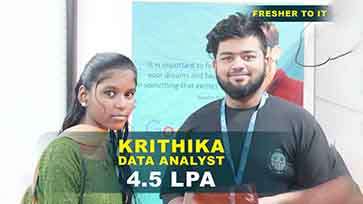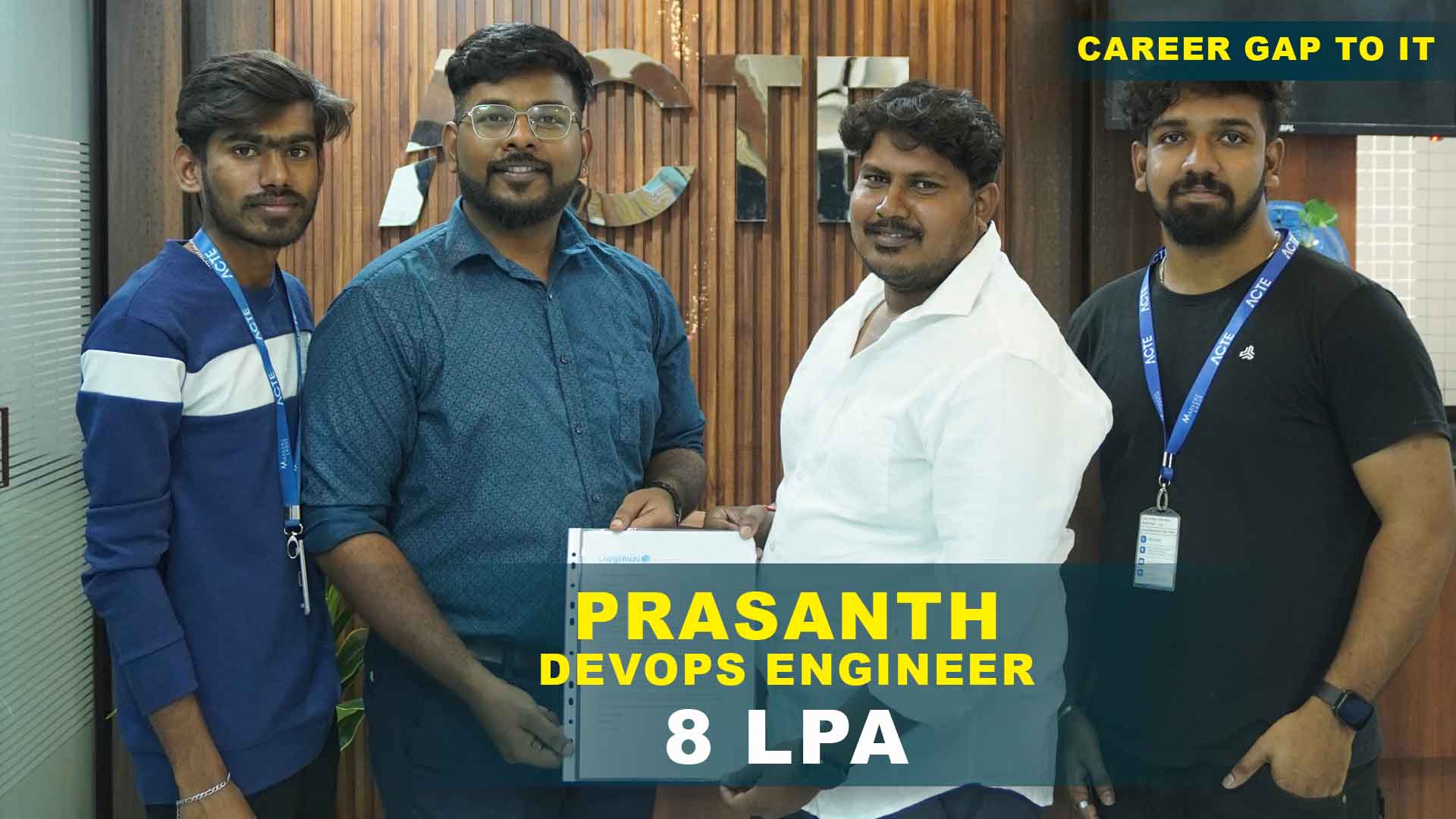550+ Students Placed Every Month Be The Next!
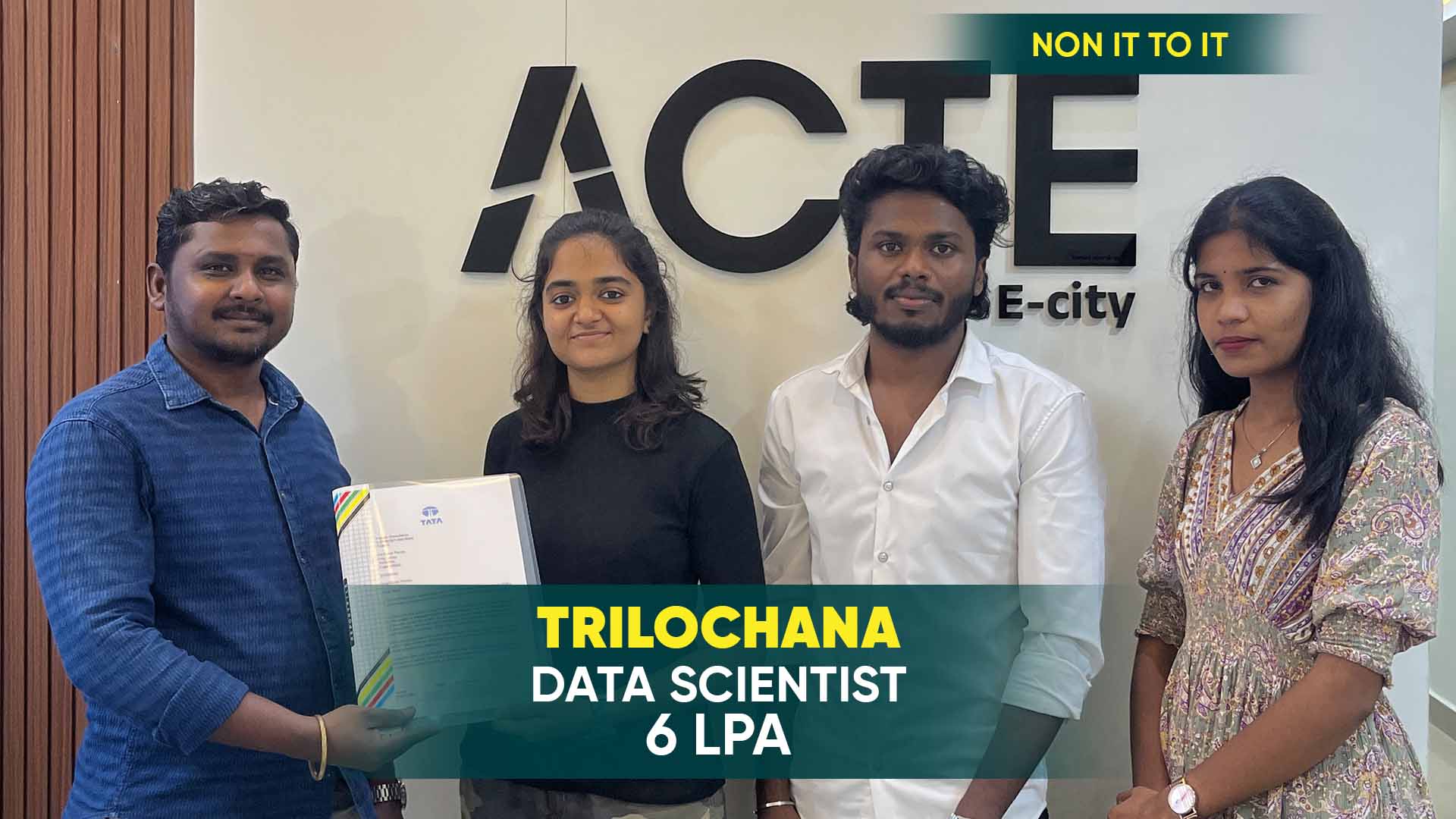



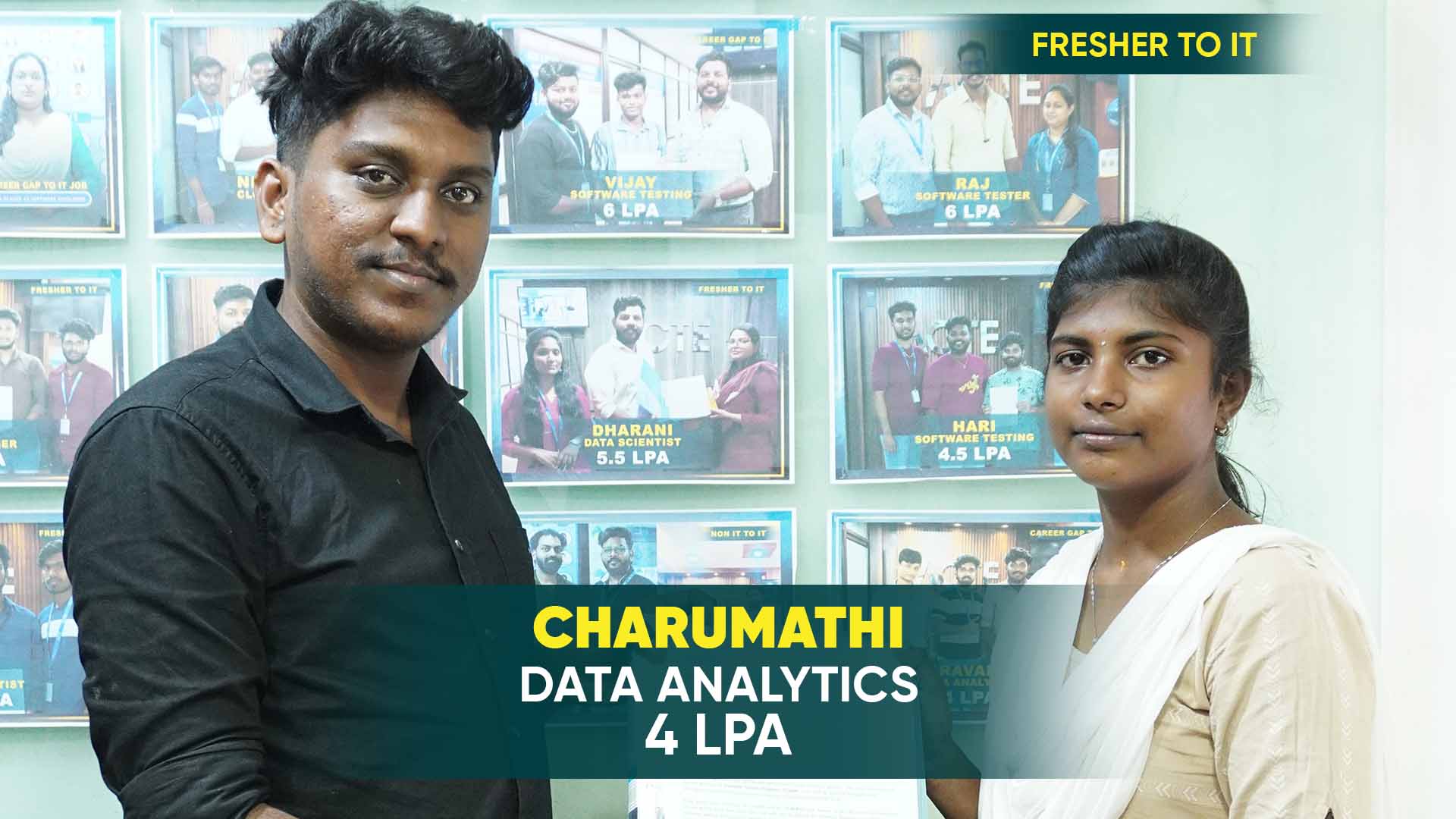
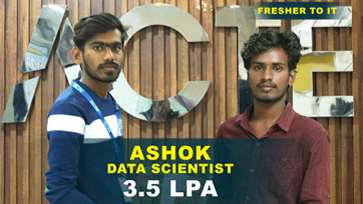




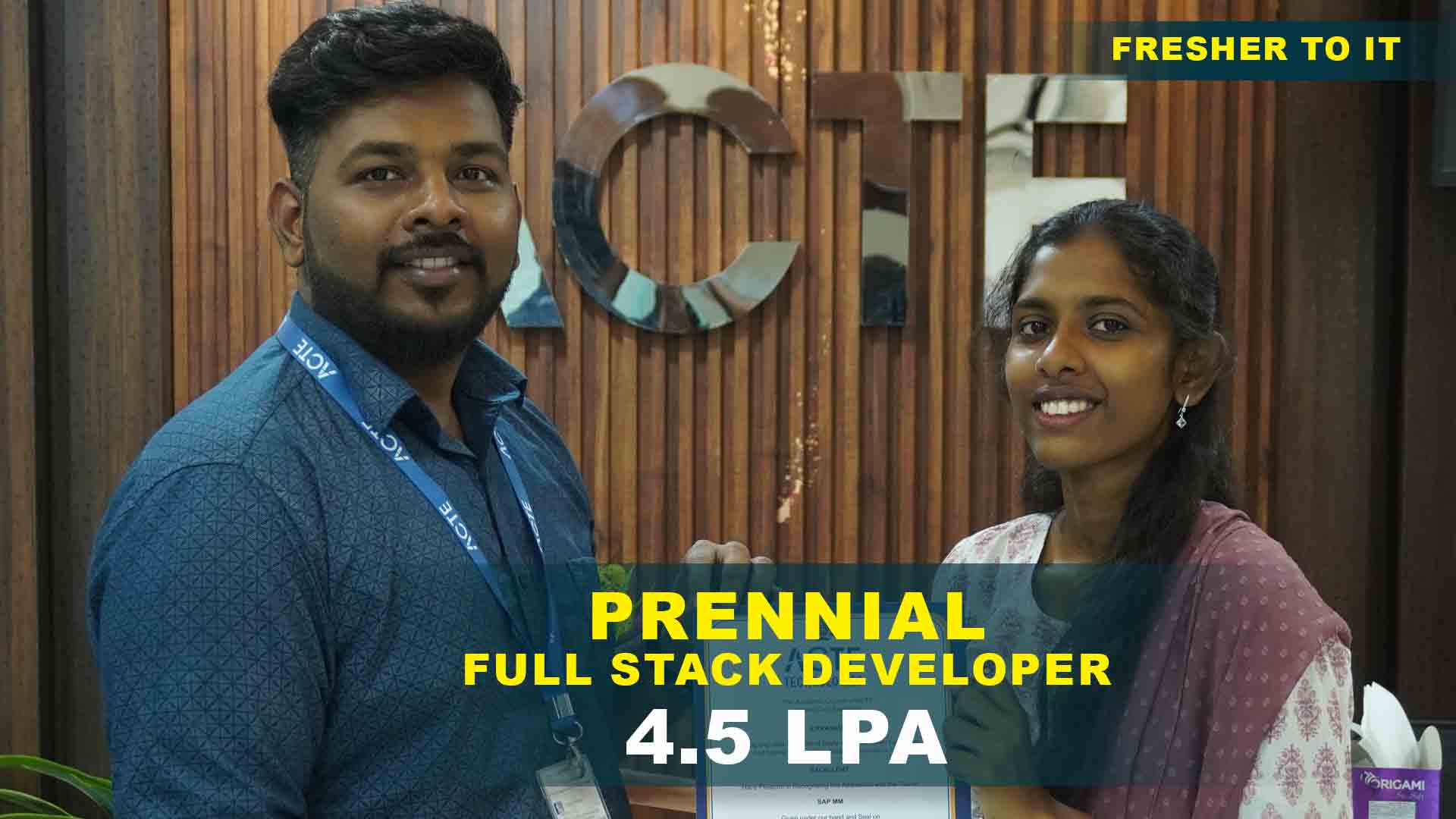
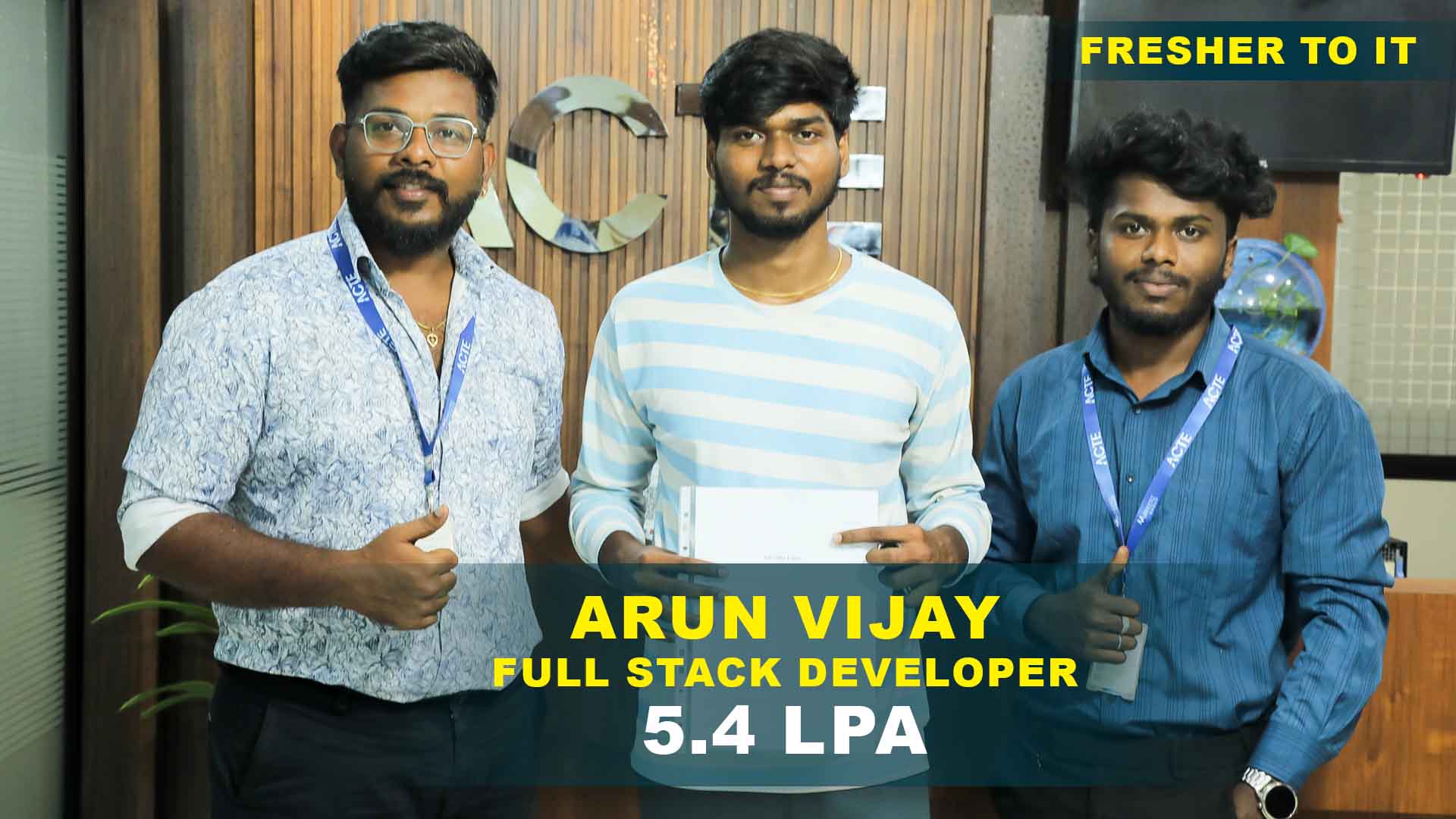


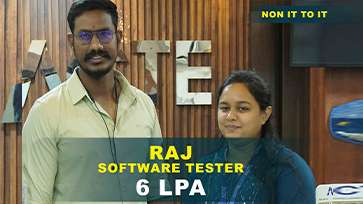
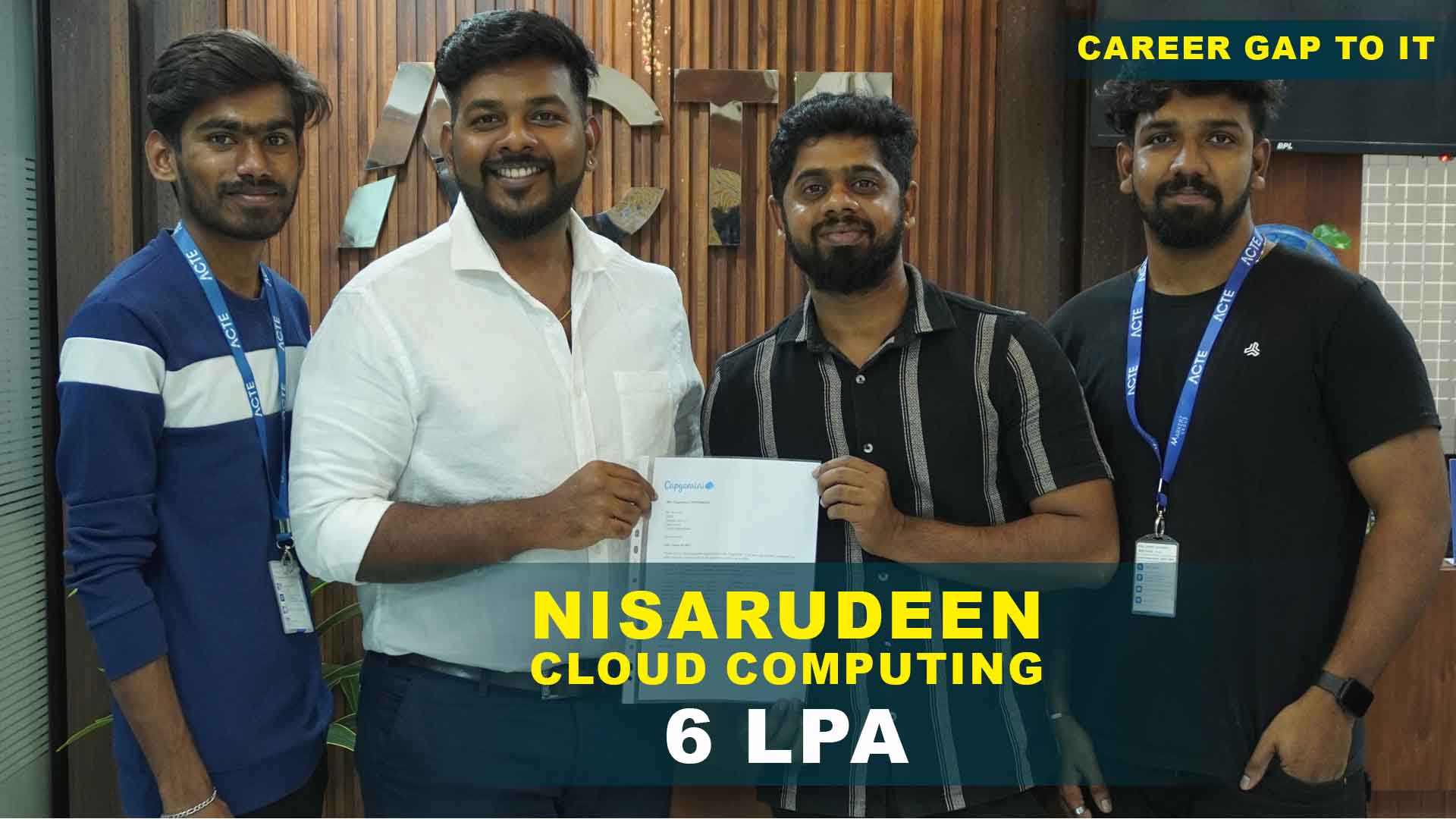
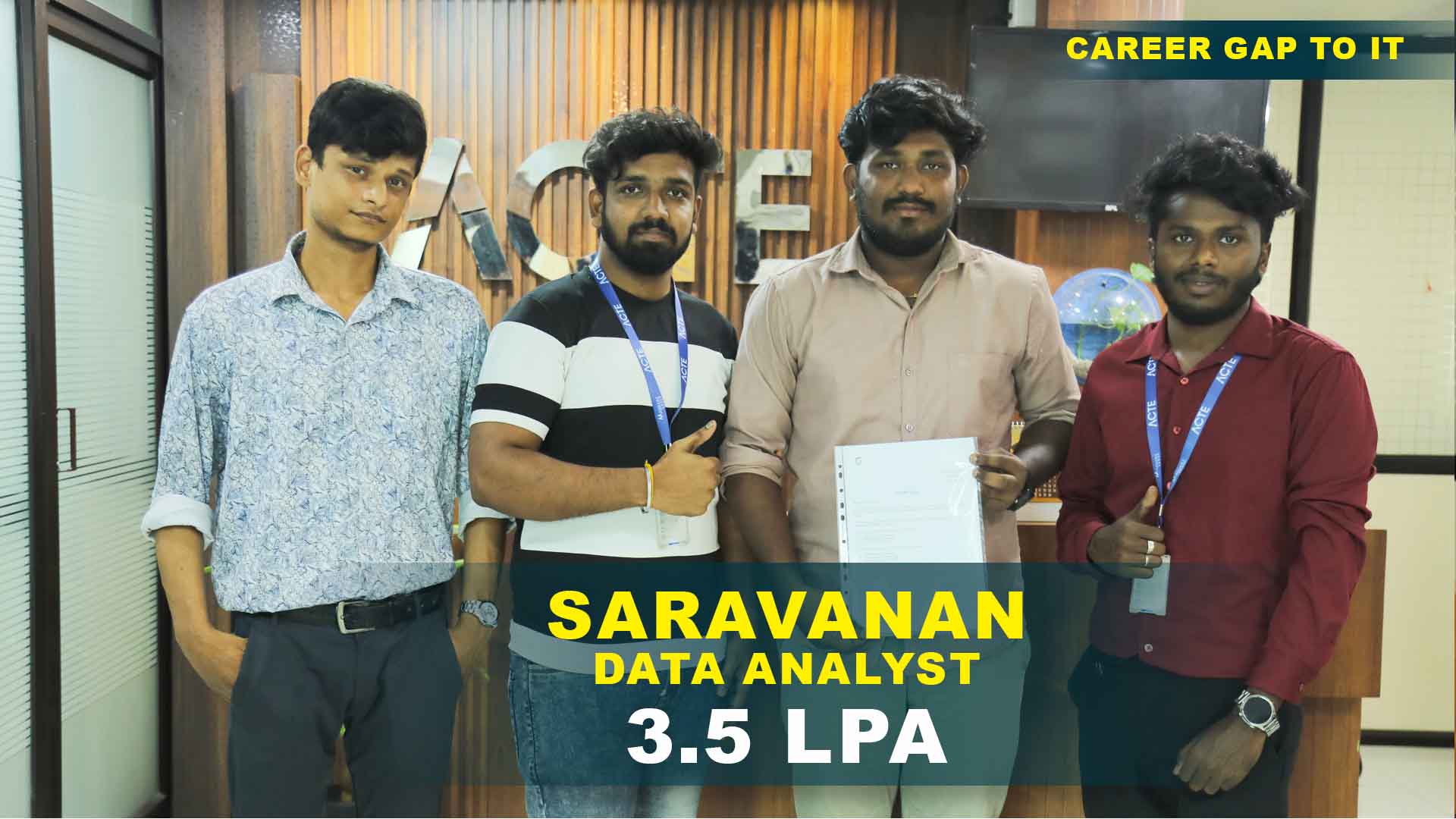
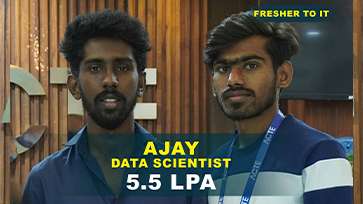



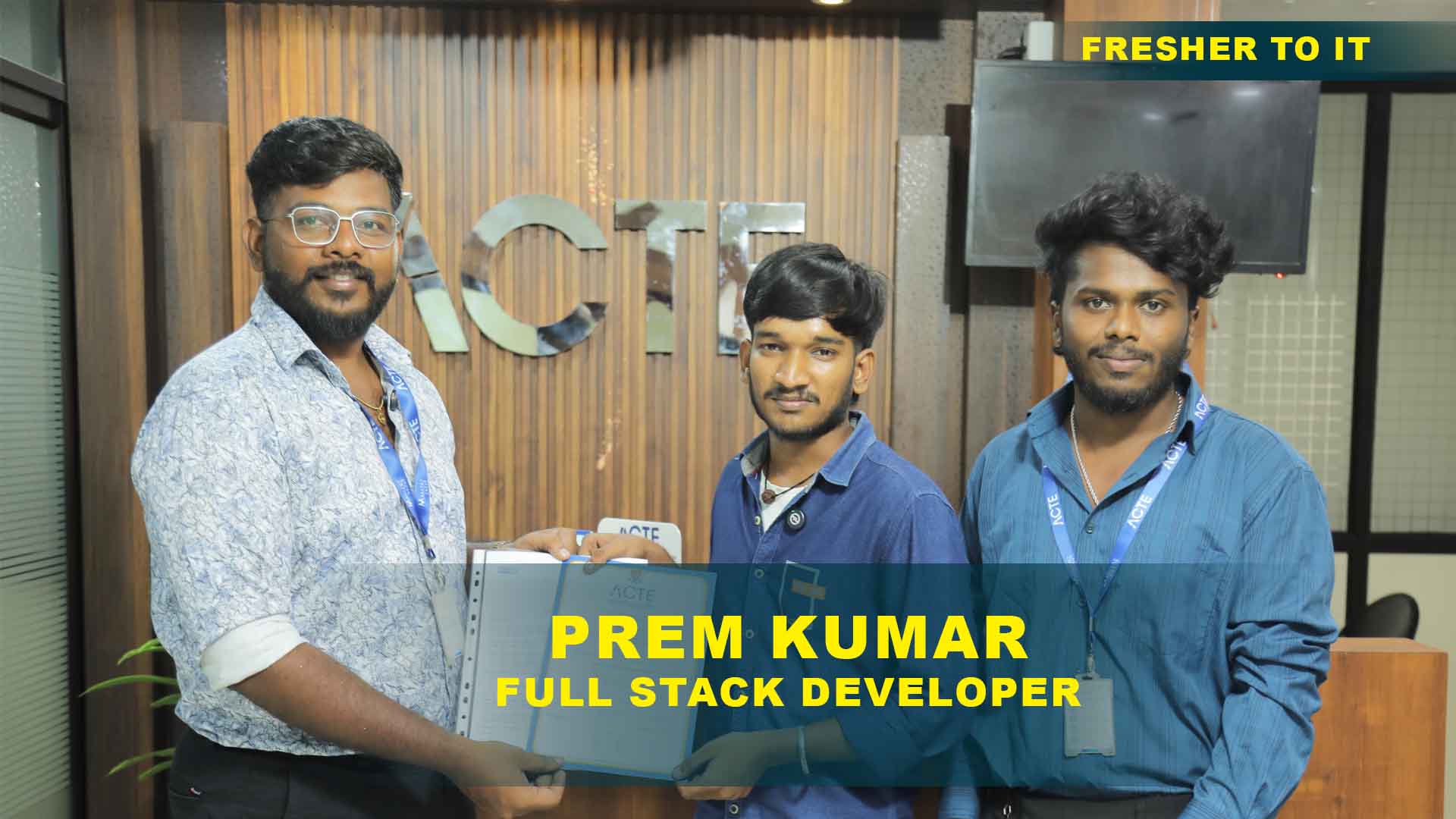


Our Hiring Partners




Curriculum Designed By Experts
Expertly designed curriculum for future-ready professionals.
Industry Oriented Curriculum
An exhaustive curriculum designed by our industry experts which will help you to get placed in your dream IT company
-
30+ Case Studies & Projects
-
9+ Engaging Projects
-
10+ Years Of Experience
Big data Analytics Training Projects
Become a Big data Analytics Expert With Practical and Engaging Projects.
- Practice essential Tools
- Designed by Industry experts
- Get Real-world Experience
Data Cleaning
Work with a raw dataset (e.g., sales data) and preprocess and data clean, filter, and structure it for analysis using Python or R.
Basic Data Visualization
Use tools like Tableau or Power BI to create interactive dashboards displaying key insights from a dataset (e.g., customer purchase trends).
Simple SQL Analytics
Perform SQL queries on a relational database to extract meaningful insights, such as customer segmentation or sales growth patterns.
Sentiment Analysis on Social Media Data
Analyze Twitter or Facebook data using NLP techniques to classify customer sentiments toward a brand.
Real-Time Data Processing with Apache Kafka
Build a Data Processing Communicate a real-time streaming pipeline that ingests, processes, and visualizes data.
Predictive Analytics on Sales Data
Use machine learning models like linear regression to predict future sales based on historical data.
Recommendation System for E-Commerce
Develop a collaborative filtering-based recommendation engine for an online shopping platform.
Fraud Detection in Financial Transactions
Implement anomaly detection algorithms on transactional data to identify fraudulent activities.
Big Data Pipeline with Hadoop and Spark
Build an end-to-end data pipeline using Hadoop, Spark, and Hive for large-scale data processing.
Career Support


Placement Assistance

Exclusive access to ACTE Job portal

Mock Interview Preparation

1 on 1 Career Mentoring Sessions

Career Oriented Sessions

Resume & LinkedIn Profile Building
Key Features

Practical Training

Global Certifications

Flexible Timing

Trainer Support

Study Material

Placement Support

Mock Interviews

Resume Building
Upcoming Batches
What's included

 Free Aptitude and
Technical Skills Training
Free Aptitude and
Technical Skills Training
- Learn basic maths and logical thinking to solve problems easily.
- Understand simple coding and technical concepts step by step.
- Get ready for exams and interviews with regular practice.

 Hands-On Projects
Hands-On Projects
- Work on real-time projects to apply what you learn.
- Build mini apps and tools daily to enhance your coding skills.
- Gain practical experience just like in real jobs.

 AI Powered Self
Interview Practice Portal
AI Powered Self
Interview Practice Portal
- Practice interview questions with instant AI feedback.
- Improve your answers by speaking and reviewing them.
- Build confidence with real-time mock interview sessions.

 Interview Preparation
For Freshers
Interview Preparation
For Freshers
- Practice company-based interview questions.
- Take online assessment tests to crack interviews
- Practice confidently with real-world interview and project-based questions.

 LMS Online Learning
Platform
LMS Online Learning
Platform
- Explore expert trainer videos and documents to boost your learning.
- Study anytime with on-demand videos and detailed documents.
- Quickly find topics with organized learning materials.
- Learning strategies that are appropriate and tailored to your company's requirements.
- Live projects guided by instructors are a characteristic of the virtual learning environment.
- The curriculum includes of full-day lectures, practical exercises, and case studies.

Big data Analytics Training Overview
Big data Analytics Training in Chennai with Career Paths
Embarking on a career through a Big Data Analytics Training Center in Chennai provides access to a diverse range of in-demand opportunities in the contemporary data-centric landscape. As companies increasingly depend on data to inform their strategic choices, skilled professionals are crucial for converting raw data into practical insights. Graduates from these programs can assume significant positions such as Data Analyst, Big Data Engineer, Data Scientist, Machine Learning Engineer, Business Intelligence Analyst, and AI Specialist. These positions necessitate proficiency in handling extensive and intricate datasets, utilizing tools such as Hadoop, Spark, and Hive, and implementing statistical and machine learning methodologies to address real-world business challenges.
The Requirements for a Big Data Analytics Course Training in Chennai
- Programming Knowledge: A basic understanding of programming is essential for working with big data. Languages like Python, R, Java, or SQL are widely used in data analytics for data manipulation, querying, and statistical analysis.
- Understanding of Databases: Since big data involves handling vast amounts of structured and unstructured data, knowledge of databases is crucial. SQL databases such as MySQL and PostgreSQL are useful for managing structured data, while NoSQL databases like MongoDB.
- Big Data Frameworks & Tools: Professionals working in big data analytics need to be familiar with frameworks such as Apache Hadoop, Apache Spark, and Kafka. These tools help process, analyze, and manage large datasets efficiently across distributed computing environments.
- Analytical & Statistical Skills: A strong foundation in statistics, probability, and data analytics is necessary for extracting insights from big data. Knowledge of techniques such as regression analysis, clustering, hypothesis testing, and predictive modeling helps analyze trends.
- System & Technical Requirements: To work with big data tools, learners should have access to a system with at least 8GB RAM, a modern processor, and a stable internet connection for cloud-based analytics platforms.
Reasons to Consider Enrolling in a Big data Analytics Training in Chennai
The placement training for Big Data Analytics in Chennai is experiencing substantial growth due to the increasing demand for data-driven professionals across various sectors. As organizations prioritize data-centric strategies, the necessity for proficient big data specialists has reached unprecedented levels. This domain not only presents high-demand employment opportunities but also offers attractive salary packages, making it a desirable career option for those aspiring to enter the data field. By participating in a thorough Big Data Analytics program, students acquire practical experience with real-world datasets and gain exposure to industry-standard tools and technologies such as Hadoop, Spark, Hive, Python, R, and cloud platforms like AWS, Azure, and Google Cloud. The curriculum typically includes machine learning applications, data visualization methods, and data engineering practices, equipping candidates to address intricate business challenges through predictive and prescriptive analytics.
Techniques and Trends in Big Data Analytics Course Development in Chennai
- Real-Time Data Processing: With the increasing demand for instant insights, real-time data processing has become a crucial aspect of big data analytics. Technologies like Apache Kafka, Apache Flink, and Spark Streaming enable businesses to process and analyze streaming data from various sources in real time. This is particularly useful in applications such as fraud detection, recommendation systems, and IoT data processing.
- Predictive Analytics & Machine Learning: Machine learning and predictive analytics are transforming big data by providing businesses with valuable foresight into future trends. Implementing AI-driven models helps companies analyze historical data and make informed decisions about customer behavior, market fluctuations, and operational efficiencies.
- Data Engineering & ETL Pipelines: Efficient data engineering is the backbone of any big data solution. Extract, Transform, and Load (ETL) processes help in automating data workflows to ensure seamless integration from multiple sources into a unified platform. Tools like Apache Airflow, Talend, and cloud-based ETL solutions allow organizations to manage large-scale data ingestion, transformation, and storage efficiently.
- Cloud-Based Big Data Solutions: With the rise of cloud computing, organizations are increasingly adopting cloud-based big data solutions for scalability, flexibility, and cost-efficiency. Platforms like AWS EMR, Google BigQuery, and Azure Synapse Analytics.
- Data Governance & Security: As data volumes grow, ensuring data privacy, security, and compliance becomes paramount. Implementing robust data governance policies and security frameworks helps organizations maintain data integrity while adhering to industry regulations such as GDPR, HIPAA, and CCPA.
The Most Recent Big Data Analytics Course Class in Chennai Tools
The most recent developments in big data analytics certification programs in Chennai present robust tools that significantly improve data processing and analysis. Apache Spark remains at the forefront as a premier big data framework, providing rapid processing capabilities. Delta Lake enhances data reliability by incorporating ACID transactions into data lakes. MLflow is transforming the management of machine learning models within big data workflows. Furthermore, cloud-native big data platforms such as Snowflake and Databricks are increasingly favored for their scalability and seamless integration with AI-driven analytics.
Career Opportunities After Big data Analytics Training
Big Data Engineer
A Big Data Engineer is responsible for designing, building, and maintaining large-scale data processing systems. They develop and optimize data pipelines using tools like Hadoop, Spark, and Kafka.
Data Analyst
A Data Analyst interprets complex data to help organizations make informed business decisions. They use SQL, Python, and visualization tools like Tableau or Power BI to analyze trends, patterns, and correlations in datasets.
Data Scientist
A Data Scientist applies machine learning and statistical modeling techniques to extract meaningful insights from big data. They work with Python, R, TensorFlow, and deep learning framework systems.
Business Intelligence Analyst
A Business Intelligence (BI) Analyst transforms raw data into actionable business insights. They create dashboards and reports using BI tools such as Tableau, Power BI, and QlikView performance tracking, and business growth planning.
Machine Learning Engineer
A Machine Learning Engineer develops algorithms and AI models to automate data-driven processes. They work with large datasets, train machine learning models, and deploy them in production using cloud platforms like AWS, Google Cloud, and Azure.
Data Architect
A Data Architect designs the overall structure and framework of big data systems. They establish best practices for data management, ensure data security, and optimize database performance. NoSQL databases, and distributed computing technologies.
Skill to Master
Data Processing & Transformation
Big Data Frameworks
Data Visualization
Machine Learning for Big Data
Data Warehousing & ETL
SQL & NoSQL Databases
Data Mining Techniques
Real-Time Data Processing
Cloud Computing
Programming Skills
Data Security & Governance
Business Intelligence & Decision Making
Tools to Master
Apache Hadoop
Apache Spark
Apache Flink
Apache Kafka
Tableau
Power BI
Apache Hive
MongoDB
Elasticsearch
Google BigQuery
AWS Redshift
Python (Pandas, NumPy, Scikit-learn)
Learn from certified professionals who are currently working.

Training by
Rajesh Kumar, having 12+ yrs of experience
Specialized in: Big Data Analytics, Data Engineering, Apache Spark, Hadoop, and Machine Learning.
Note: Rajesh is known for his hands-on approach in training professionals on real-world big data applications, optimizing large-scale data processing, and implementing predictive analytics.
Premium Training at Best Price
Affordable, Quality Training for Freshers to Launch IT Careers & Land Top Placements.
What Makes ACTE Training Different?
Feature
ACTE Technologies
Other Institutes
Affordable Fees
Competitive Pricing With Flexible Payment Options.
Higher Fees With Limited Payment Options.
Industry Experts
Well Experienced Trainer From a Relevant Field With Practical Training
Theoretical Class With Limited Practical
Updated Syllabus
Updated and Industry-relevant Course Curriculum With Hands-on Learning.
Outdated Curriculum With Limited Practical Training.
Hands-on projects
Real-world Projects With Live Case Studies and Collaboration With Companies.
Basic Projects With Limited Real-world Application.
Certification
Industry-recognized Certifications With Global Validity.
Basic Certifications With Limited Recognition.
Placement Support
Strong Placement Support With Tie-ups With Top Companies and Mock Interviews.
Basic Placement Support
Industry Partnerships
Strong Ties With Top Tech Companies for Internships and Placements
No Partnerships, Limited Opportunities
Batch Size
Small Batch Sizes for Personalized Attention.
Large Batch Sizes With Limited Individual Focus.
LMS Features
Lifetime Access Course video Materials in LMS, Online Interview Practice, upload resumes in Placement Portal.
No LMS Features or Perks.
Training Support
Dedicated Mentors, 24/7 Doubt Resolution, and Personalized Guidance.
Limited Mentor Support and No After-hours Assistance.
We are proud to have participated in more than 40,000 career transfers globally.

Big data Analytics Certification

A Big Data Analytics certification validates your expertise in handling and analyzing large datasets, making you a valuable asset in today’s data-driven world. It enhances your technical skills in data processing, visualization, and machine learning, giving you a competitive edge in the job market.
While specific prerequisites vary, a basic understanding of programming (Python, SQL, or Java), statistics, and data management concepts is recommended. Knowledge of big data tools like Hadoop, Spark, or Tableau can be beneficial. Some certifications may also require prior experience in data analytics or related fields.
While real-world experience is not always mandatory, it significantly enhances your learning and job prospects. Practical experience helps apply theoretical concepts to real business scenarios, making you a more competitive candidate. Many training programs include hands-on projects to simulate industry challenges, which can be useful when seeking certification.
ACTE’s Big Data Analytics Certification can be a valuable investment if you aim to build a strong foundation in data analytics. The course provides hands-on training, industry-relevant tools, and expert mentorship, making it a great option for career growth.
Frequently Asked Questions
ACTE offers multiple flexible learning modes for the Big Data Analytics Course to suit the needs of different learners. The course is available in classroom training, where students receive in-person instruction with hands-on practice. Online Instructor-Led Training allows learners to attend live, interactive sessions from anywhere.
- Register for the Course.
- Join Live Sessions.
- Access Study Materials.
- Engage in Hands-on Projects.
- Yes, ACTE provides access to recorded sessions for students who miss a live class. Every session is recorded and uploaded to the learning portal, allowing learners to revisit lessons anytime. This ensures that students do not fall behind in their coursework and can learn at their own pace. Additionally, learners can clarify doubts during the next live session or through one-on-one support from trainers.
- Yes, ACTE offers free demo sessions to provide an overview of the course.
- You can register for a demo class by contacting the ACTE support team.
- The demo includes an introduction to the course curriculum, trainers, and teaching approach.
- It helps you understand how the training will be delivered before making a commitment.
- The duration of the Big Data Analytics Course at ACTE varies based on the chosen mode of learning. The fast-track course is completed in 4 to 6 weeks, while the regular track course takes 2 to 3 months with flexible class schedules. Weekend batches are also available for working professionals. Learners who opt for self-paced training can complete the course at their own convenience with lifetime access to materials.
)


